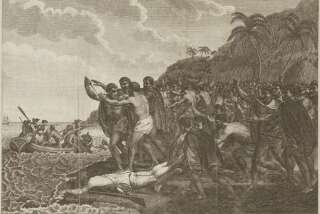Herman Wouk, a novel force
The year Herman Wouk was born, Woodrow Wilson was in his first term in the White House, the Lusitania’s sinking was on the front page and “The Birth of a Nation” was playing in silent movie theaters. In the 97 years since, with such books as “The Caine Mutiny,” “Marjorie Morningstar and “The Winds of War,” Wouk became a force in American letters, and in film and television as well. His latest novel, “The Lawgiver,” tells the tale of a Hollywood struggle to make a movie about Moses. Wouk’s modern story about the ancient and long-lived biblical hero unfolds via text messages, emails and plain old-fashioned letters. And he’s made himself and his late wife, Betty Sarah, characters in the book. Wouk is a devotee of Skype, which is how he talked to me from his Palm Springshome.
So many towering characters in the Bible — David, Solomon. Why did you choose Moses?
When I first started, I was a comedy writer for Fred Allen. Out at sea [during World War II], I had plenty of time to think, and I decided to write a lightweight novel, “Aurora Dawn,” and it did fairly well. So I was in the novel-writing business. Then I wrote “The Caine Mutiny.” I discovered a narrative power I didn’t know I had. I was going to be a funny writer, but here I was doing something dramatic and panoramic. I have a very strong Jewish background, and I rediscovered in the five books of Moses the greatest narrative ever written. My thought was someday I’ll write a novel about Moses. As I wrote more serious, more ambitious books, I discovered I couldn’t write a novel about Moses because there’s no narrative that equals [the Bible’s].
So I gave up on that for many years. But [after] my last book was published, I thought, what about a new book? By not making it a narrative, just doing it as somebody trying to [make a Moses movie]. That’s Hollywood. I’ve heard there are a couple of Moses movies in the works. I even thought, as I was writing “The Lawgiver,” well, suppose one of those comes out in the meantime? What does it matter? I’m doing my version.
Were you able to say things about Hollywood and yourself that you couldn’t do in a traditional narrative novel?
That’s right. Of course, I have mixed feelings about Hollywood, depending on how my work has turned out. I thought “The Caine Mutiny” movie was quite good. I don’t want to mention the ones that were terrible. Dan Curtis, the best of the TV directors, we got together and we made a great match. I wrote the screenplays [for “Winds of War” and “War and Remembrance”] mostly directed by him. They were very long — 18 hours for “Winds of War.” He kept telling me, cut out the history! They won’t sit still for the history! But I pushed him on the history and he pushed me on the story, and it came out very well together.
Moviemaking is, shall I say, a very intense and self-absorbed process.
That’s in the nature of not onlyartbut entertainment. I’ve done plays on Broadway; nothing else matters while that show is on. I’m a Sabbath observer, and I would leave for 25 hours and they’d plead, don’t go away, the show is going to collapse! Twenty-five hours later it’s going on the same way, the tearing of hair is the same. Anything you’re really engaged in, particularly entertainment, where you face the public — it’s in the nature of it to be intense. If you’re not intense about it, it shows up on screen, in the play, in the novel too.
This book is composed of text messages, emails, notes of conversations — is there any future for sustained literary fictional narratives?
Whatever form it takes, storytelling will exist, and words are the medium. In film and theater you have the staging to help the story along. In a novel, all you have are the words. But there’s magic in words. And one way or another, a writer who has a story to tell, like “Jane Eyre,” will find a way to tell it in words. And one way or another, through Amazon or the Nook or whatever, it will show up.
Frankly, I’m very glad that there was a window in time 30 or 40 years ago when I was able to write long novels and be reasonably sure they would be read. It’s an incredible business, sitting down and saying, well, I will now write “The Winds of War,” it’ll be 1,000 pages long, and somebody’s going to print it and somebody’s going to read it.
Your literary generation includes names like Norman Mailer and Saul Bellow.
I’ve never discussed in public or in print any of my contemporaries. It’s just a rule of mine and I’ve stayed with it. Generally speaking, it was a pretty good generation of writers.
Whose work influenced you?
One that was very strong was “Tristram Shandy” by Laurence Sterne. It was the first anti-novel; it takes the novel and turns it inside out. There’s no direct narration at all — it’s all skipping around and intensely personal. The idea of the anti-novel, the story told by not being told, that’s very sophisticated. When it came to doing the Moses novel, I figured the only way to tell it was not to tell it.
You were born in New York but came west decades ago.
The first time I saw the West was when Fred Allen came out to do a movie. I was writing for him then. [We] came out on the Super Chief; it was something — two or three days between Chicago and L.A. and the food was incredibly wonderful. To see the West for the first time from the Super Chief was a pleasurable thing.
Did you have an epiphany that you belonged here?
Not exactly. It was more of a “Wow! Paradise!” Until we got off the train and ran into the smog.
You met your future wife in L.A. during the war.
We went in for a Navy yard overhaul. I was on a ship very like the “Caine,” a World War II destroyer. We went to Terminal Island, and one night two of us officers went out frankly to drink a little bit. On Terminal Island the bars closed at midnight and we were just getting started. One of the girls was a file clerk in some naval office. She said, “I know where there’s a birthday party.” We just crashed the party, because wearing uniforms and being officers it was open sesame — we’d just go right in. It [turned out to be] my wife’s birthday party. That’s called luck or fate or providence or God. That was what changed the whole course of my life.
Betty Sarah Wouk died last year after more than 65 years of marriage and decades as your agent and an insightful editor of your work. Has your writing changed without her hand in it?
No way I can tell. I lead a diminished life in general without her. I can hear her sometimes saying about a page of mine, “That isn’t working.” That picture [of her] is on my desk; she’s right there talking to me.
Your brother, Victor, was a Caltech PhD who pioneered electric and hybrid vehicles.
Caltech called us the Brothers Wouk. [For] the publication of “A Hole in Texas” [Herman’s novel about the supercollider that never got built here], there was a celebration for both of us. Now there’s an annual Wouk lecture at Caltech in his honor.
Can you tell me what your next book is about?
Hell, no!
“The Lawgiver” is about a new Moses movie. There have already been two “Ten Commandments” films, both by Cecil B. DeMille. What did you think of them?
[In 1923] I was 8 years old and my mother took me downtown to see it. There was no curtain — just the Ten Commandments, two tablets, and they opened up and the movie began. That was a very strong beginning to a silent movie. I thought that was an awesome movie, the exciting way it was presented. Margo in “The Lawgiver” has mixed feelings about the second one, and so do I. [But] it’s an overpowering spectacle; who am I to argue? They play it every year, like “A Christmas Carol.”
How different was this book, assembling notes and memos and emails rather than writing prose?
It was very, very difficult, and I wasn’t sure it’d come off. It’s kind of late in the game to start fooling around with new formats, but when the adrenaline got going, I said, all right, go ahead, have fun. But try to get the story told, which I did as well as I could. I think it does come off.
I wouldn’t dare use my own voice to say anything about Moses, but with all these other [characters’] voices and communications and the picture that arises of this noble eternal figure who was just a man — that was worth trying for.
People are learning history through novels and movies rather than actual history books.
It’s a bad thing but it’s better than nothing. Many historical novels are worthless, but a novel like “War and Peace” is the way you find out about the Napoleonic wars [if] there’s no other way for you to get it.
patt.morrison@latimes.com. This interview is edited and excerpted from a taped transcript.
More to Read
A cure for the common opinion
Get thought-provoking perspectives with our weekly newsletter.
You may occasionally receive promotional content from the Los Angeles Times.







